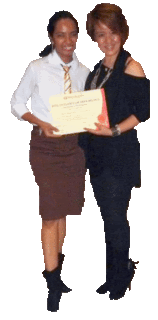 to swipe a phrase from my other favourite band, we are now into ABBA’s “imperial phase”, their shift from one-hit wonders to the world’s biggest pop group sudden and complete. the world had, in fact, been patient with ABBA—“mamma mia” is the fourth single from their self-titled album, the others - “so long”, “i do i do i do i do i do”, “s.o.s.”—having been each more popular than the last. that triad looks like an evolution now, but they were all on the same record, so the development is in the band’s (and stig andersson’s) understanding of what they were commercially capable of: a play-safe “waterloo” throwback, a lilting bit of light pop and then the fully unleashed melodrama of “s.o.s.”, indelible melodic hooks melded perfectly to the song’s emotional beats.
to swipe a phrase from my other favourite band, we are now into ABBA’s “imperial phase”, their shift from one-hit wonders to the world’s biggest pop group sudden and complete. the world had, in fact, been patient with ABBA—“mamma mia” is the fourth single from their self-titled album, the others - “so long”, “i do i do i do i do i do”, “s.o.s.”—having been each more popular than the last. that triad looks like an evolution now, but they were all on the same record, so the development is in the band’s (and stig andersson’s) understanding of what they were commercially capable of: a play-safe “waterloo” throwback, a lilting bit of light pop and then the fully unleashed melodrama of “s.o.s.”, indelible melodic hooks melded perfectly to the song’s emotional beats.“mamma mia” is more iconic than “s.o.s.” but it’s not as good. the ABBA sound still has a bit of glam in it-- those glittery smeary guitars over the intro; the boys getting near the mic—and this would gradually fade, but this record is a mish-mash of ideas done well here but better elsewhere in their catalogue. the nervy stacatto piano bed, for instance, shows up again with more confidence on “money money money”. the shouty “JUST ONE LOOK!” hook calls back to “waterloo”. the record’s best moment—that sudden sweep into “yes, i’ve been broken hearted...”—is its most ABBA-ish, showing their flair for (forgive my lack of technical terms!) inserting ballad-y hooks into upbeat songs. and finally, i don’t think the lyrics are up to their later standards - the “mamma mia!” refrain itself feels like a working title to fit the melody which just hung around because they couldn’t think of anything better.
some people’s tolerance for ABBA is low because their music is so inescapable—i respect that point of view but if anything i feel i don’t hear enough ABBA, there are swathes of marvellous andersson/ulvaeus songs which get overlooked in favour of the usual five or six. but of those five or six, this is the one where i can most sympathise with the ABBA-weary: its lack of an emotional catch for me makes it more vulnerable to overplay.
 from what i understand, the four members of pop group ABBA have attended the swedish premiere of mamma mia, the film which features 22 of their songs. several thousand fans cheered as benny andersson, bjorn ulvaeus, anni-frid lyngstad and agnetha faltskog walked down the red carpet in stockholm. lyngstad and faltskog also embraced meryl streep, one of the movie's stars. the group had not met up since the original mamma mia musical opened in sweden in february 2005. they have not even performed in public since 1986, 12 years after shooting to fame by winning the eurovision song contest with their track waterloo.
from what i understand, the four members of pop group ABBA have attended the swedish premiere of mamma mia, the film which features 22 of their songs. several thousand fans cheered as benny andersson, bjorn ulvaeus, anni-frid lyngstad and agnetha faltskog walked down the red carpet in stockholm. lyngstad and faltskog also embraced meryl streep, one of the movie's stars. the group had not met up since the original mamma mia musical opened in sweden in february 2005. they have not even performed in public since 1986, 12 years after shooting to fame by winning the eurovision song contest with their track waterloo.owh... how i can't wait to watch this myself—
its the story of donna (streep) who is about to attend the wedding of sophie (amanda seyfried), the spirited daughter she's raised alone. for sophie's wedding, donna has invited her two lifelong best girlfriends—practical and no-nonsense rosie (julie walters) and wealthy, multi-divorcee tanya (christine baranski) —from her one-time backing band, donna and the dynamos. but sophie has secretly invited three guests of her own.
so what now for this trend? are musicals back? maybe. will romantic comedies get sillier, raunchier and more musical? possibly. will hollywood being paying more attention to the female audience—almost certainly. which means some more interesting, entertaining, counter-programmed summer movies.





































|